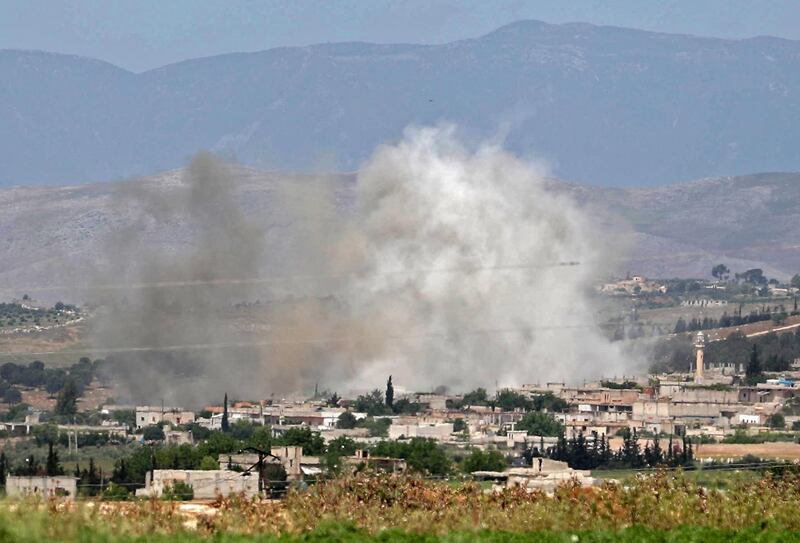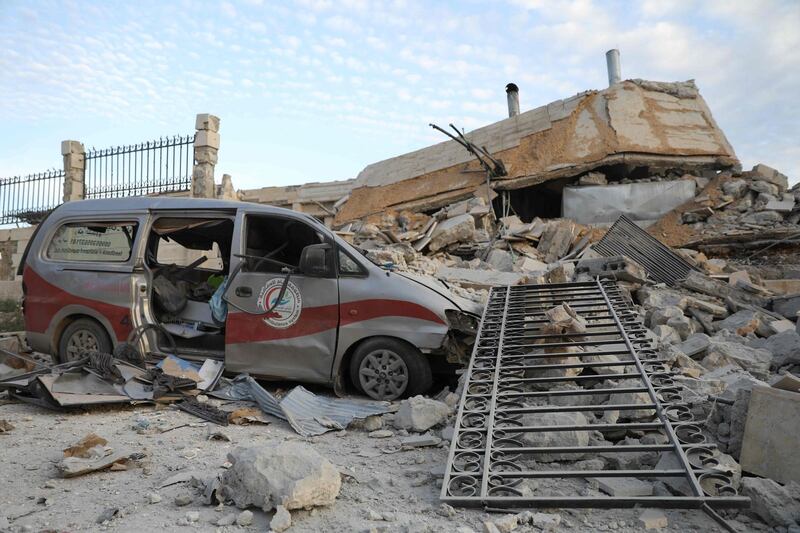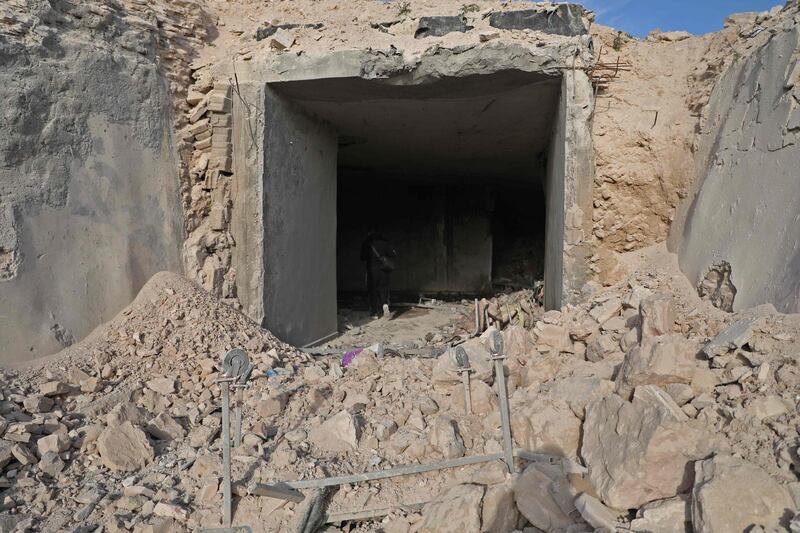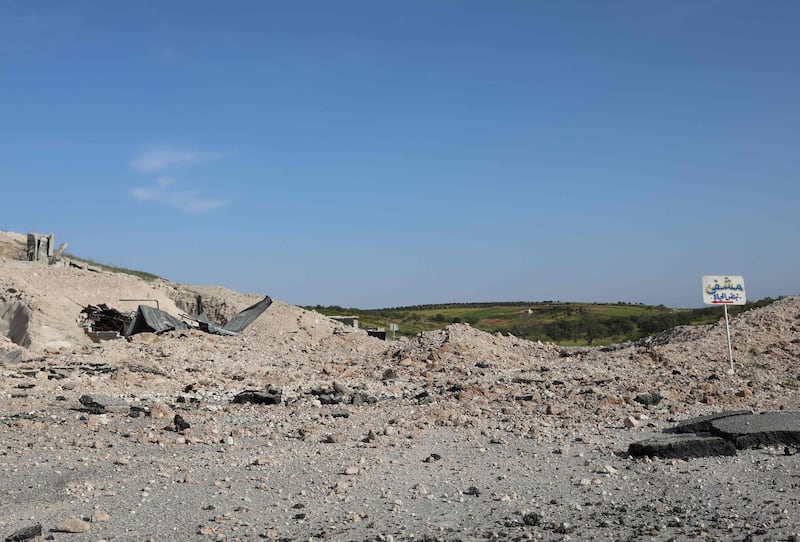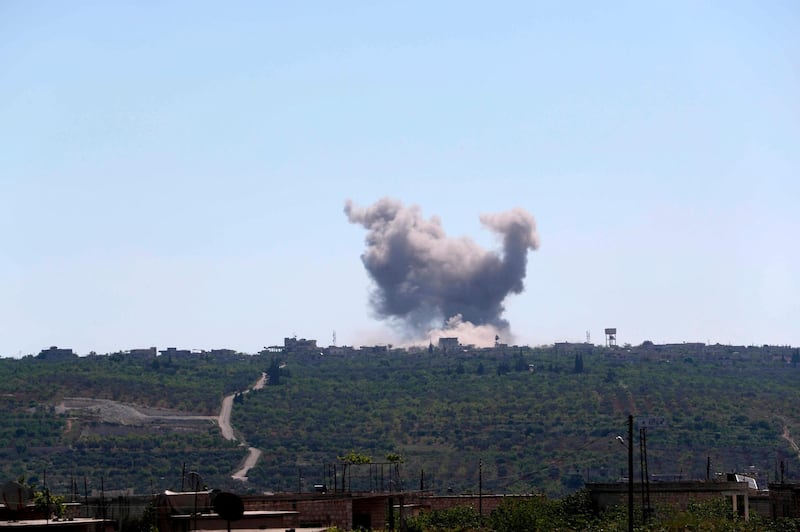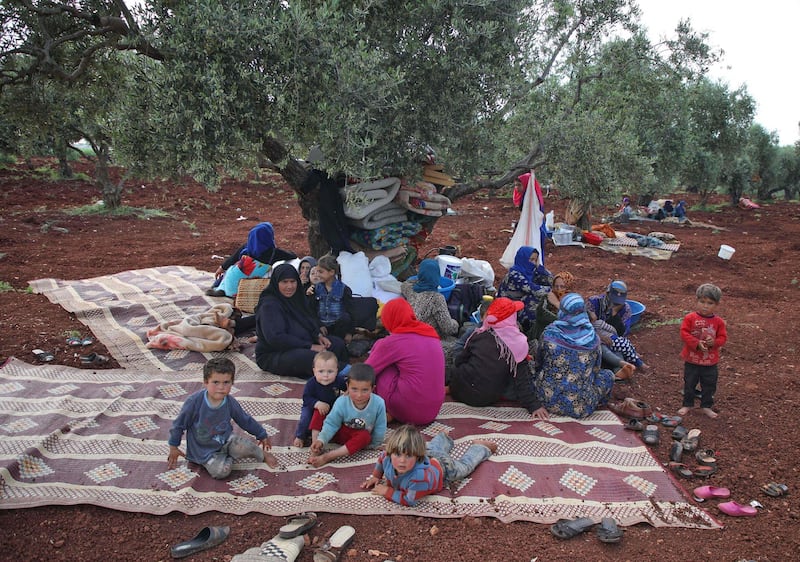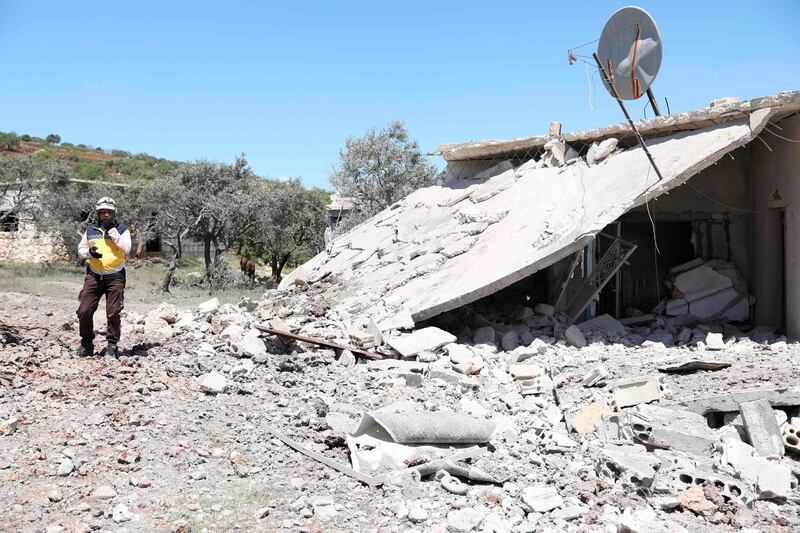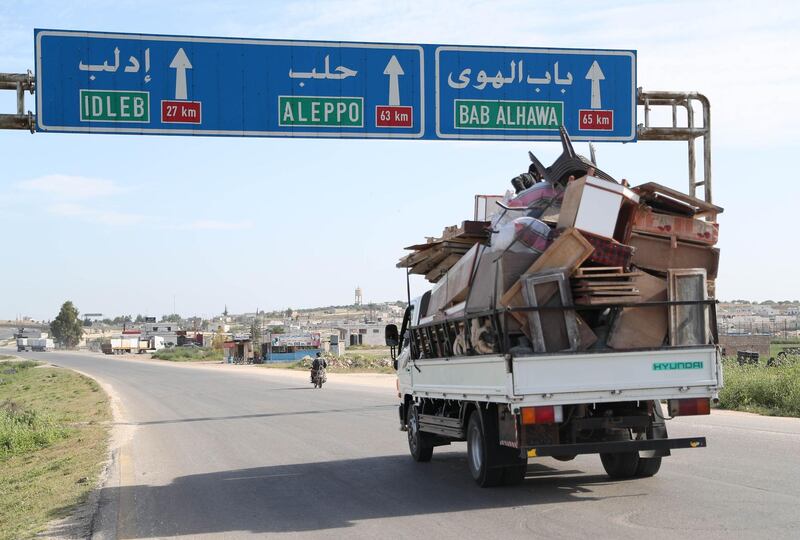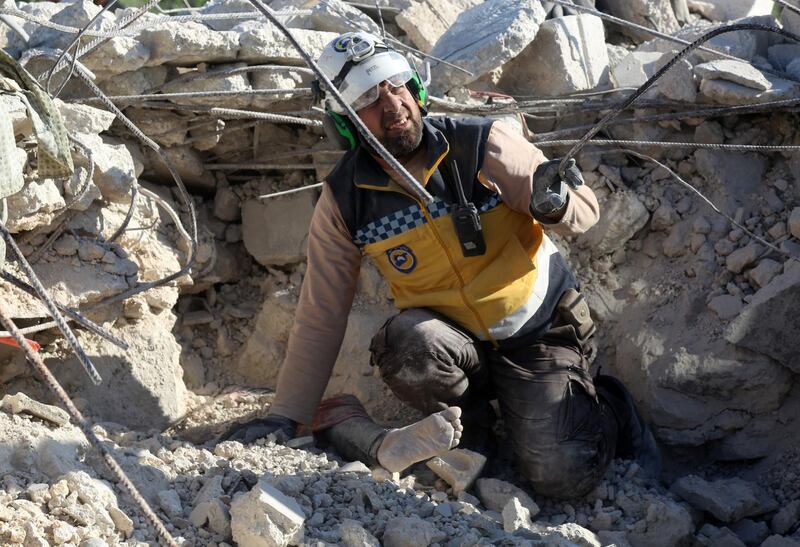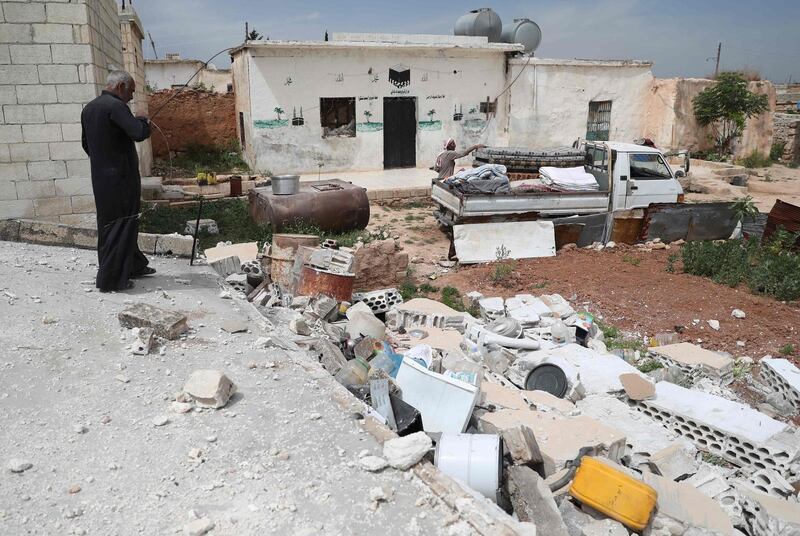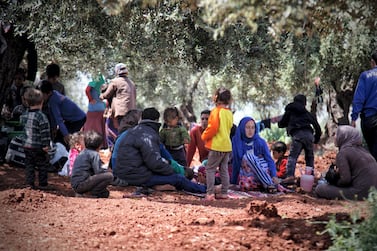Over 100,000 civilians have been displaced in northern Syria’s Idlib in the last week, the United Nations said on Tuesday as hospitals, houses and first responders have been targeted in the ongoing week-long offensive.
"We are alarmed by ongoing reports of aerial attacks on population centres and civilian infrastructure, resulting in hundreds of civilians dead and injured," said David Swanson of the UN Office for the Coordination of Humanitarian Affairs, or OCHA.
"More than 152,000 women, children and men have been displaced in Aleppo and Idlib governorates over the past week alone," he said.
Fighting subsided early on Tuesday after pro-government forces thwarted several counter-attacks and consolidated new positions, head of the UK-based Syrian Observatory for Human Rights, Rami Abdul Rahman, said.
But then air strikes and artillery shelling on Tuesday killed at least 13 civilians. Nine were killed in similar strikes on Monday.
Opposition-linked first responders, known as the White Helmets, say warplanes bombed a market in the village of Ras El Ain on Tuesday, killing four people and wounding 20.
French President Emmanuel Macron expressed his "extreme concern" over the heightened violence.
Syrian troops captured a village and a strategic hill from hardline militant groups on Monday in the northwest region of Idlib, regime media reported, as United Nations head Antonio Guterres called for action to prevent civilian casualties and mass displacement.
The Syrian government's advance was the deepest push so far this year into Syria's last major rebel stronghold. The latest wave of violence, which began April 30, has raised fears the government may launch a wider offensive to retake the area, home to around 3 million people. It is also the most serious challenge to a Russia-Turkey sponsored cease-fire in place since September.
So far, 21 hardline fighters from the former Al-Qaeda affiliate Hayat Tahrir Al Sham and its ally in the Turkistan Islamic Party as well as 22 pro-government fighters have been killed in the violence. Thousands of civilians have been displaced and medical centres destroyed by regime and Russian airstrikes.
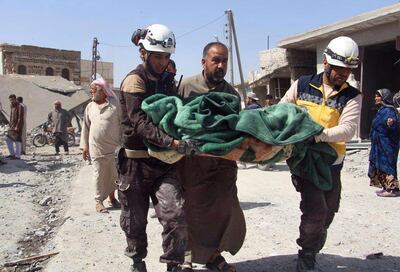
A senior Russian official said Russia's air base in the coastal province of Latakia came under fire from the insurgents, the latest assault on the military post since Friday.
With threats, interference and aid deliveries in jeopardy relief workers say hardline militants are adding to the huge challenges they face in violence-plagued northwest Syria.
Around 2.7 million of its roughly three million residents need humanitarian assistance according to the UN.
Most rely heavily on food, medicine and other aid brought across from Turkey by the UN and charity groups.
But efforts by the "de-facto authorities" in Idlib "to tamper with, impede or frustrate the delivery of humanitarian assistance including by undermining the safety of humanitarian workers, has been an unfortunate reality", said Rachel Sider of the Norwegian Refugee Council (NRC).
The Hayat Tahrir Al Sham’s civil wing – the so-called "Salvation Government" – cemented control over Idlib at the beginning of the year.
"The interference has increased since January," said a humanitarian worker in Idlib, who wanted to remain anonymous for fear of retaliation.
"There is not a single aid organisation that has been spared threats, arrests, or closure for very silly reasons," he said, even as Idlib has come under increased bombardment by the regime and its ally Russia over the past month.
In April, jihadists threatened to detain him because he refused to provide them with food baskets his team was distributing at a camp for the displaced in southern Idlib, he added.
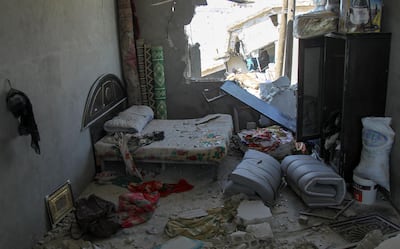
"They told me I should give them aid because they are mujahideen," said the 27-year-old.
He said Hayat Tahrir Al Sham also detained him for four days seven months ago in Idlib city for photographing aid deliveries without their authorisation.
Militants beat him, confiscated his laptop, and broke his camera, he said.
"They told me I should thank God I was being released alive."
Paul Donohoe of the International Rescue Committee said, "aid groups face interference from armed groups in Idlib, such as the restricting of access to vulnerable populations or attempting to influence beneficiary selection and the location of aid delivery."
He declined to provide more detail but a second humanitarian worker in Idlib, who also asked to remain anonymous, said several projects by international aid agencies have been dropped in recent months because of such meddling.
A plan to provide bakeries in Idlib with free flour was scrapped because the Salvation Government insisted on limiting beneficiaries to bakeries it is affiliated with, the 29-year-old said.
"Our activities as an organisation have become very modest since this happened to us," he added.
The governing body is also trying to ensure its affiliates are among those who secure tenders with aid agencies, which attempt to avoid this through screening, he said.
"They want a cut of any project implemented in the area," he said.
The encroachment has sparked concern that relief items and aid money may fall in the wrong hands.
Ms Sider, of the NRC, said: "In this environment, aid agencies cannot completely eliminate the risk of diversion and we'd like donors to recognise this."
The UN has said it is taking extra measures to combat diversion.
They include "additional screening from partners, suppliers, even workers, staff, and third-party monitoring, including the use of modern technology – barcoding, establishing hotlines to be able to be sure that aid reaches the right people," the UN regional coordinator for Syria, Panos Moumtzis, said.
There has yet to be any major decrease in humanitarian assistance but some donors have cut funding, said Ahmed Mahmoud, Syria director for the Islamic Relief charity.
"So far, five major hospitals have had to close entirely and seven other medical facilities – including hospitals focusing on paediatrics and obstetrics – severely cut back their operations due to funding cuts," he said.
Though there could also be other reasons, "some donors may have concerns regarding the shifts in control in northwestern Syria, which may have affected their funding decisions.
"As one facility after another shuts its doors, the pressure only grows on those that remain," he said.
For its part, the Salvation Government denies jeopardising relief efforts.
A Salvation Government official in charge of coordinating aid, who gave his name as Dr Jihad, said the administration was "striving to organise [humanitarian] work" by strengthening cooperation with relief agencies and facilitating aid deliveries.
"The more we share responsibility and decision making and the more we coordinate our work, the better the results," he said.
